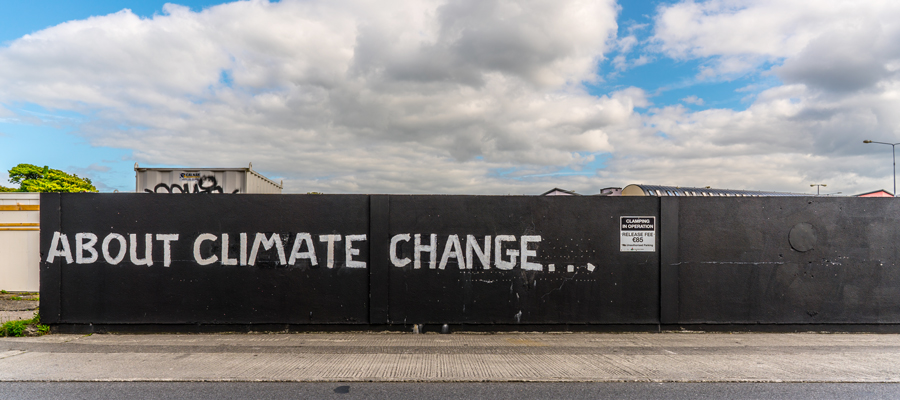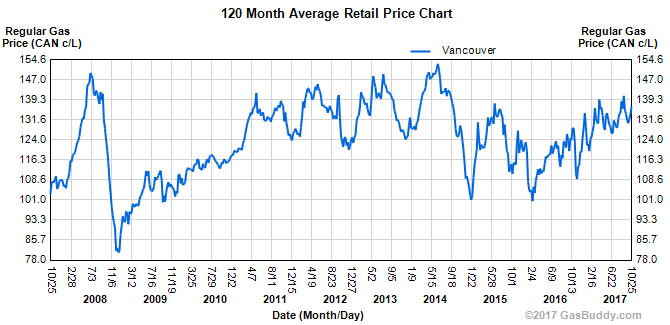BC Budget must go beyond small carbon tax increases to fight climate change

After many years of inaction, BC needs a new climate plan. The previous government’s August 2016 Climate “Leadership” Plan was more than a disappointment. Not only did it do little to reduce BC’s greenhouse gas emissions, the plan was written hand-in-hand with the fossil fuel industry.
For many British Columbians, climate action is synonymous with BC’s carbon tax. But if BC is to achieve deep emission reductions, the province needs much more: new public investments, regulations, and saying no to fossil fuel expansion projects. Increases in the carbon tax should be part of that package, but they cannot be the whole thing, or even the centrepiece.
September’s BC Budget update committed to modest increases in BC’s carbon tax, which has been stalled at $30 per tonne of carbon dioxide since 2012. Starting in April 2018, the carbon tax will increase again by $5 per tonne per year, for four years, and will thus hit $50 per tonne by 2021.
The intuition behind a steadily rising carbon tax is that it makes emissions from your car or home steadily more expensive, so the price signal shifts behaviour over time. The previous BC government won a lot of praise when it brought in a $10 per tonne carbon tax in 2008, with annual increases to $30 per tonne in 2012.
In reality, the carbon tax is still relatively small. A $5 per tonne per year increase represents just over one cent per litre each year at the pump. While this is a positive step, its likely impact on emissions will be negligible.
In reality, the carbon tax is still relatively small. The current $30 per tonne translates to only 6.7 cents per litre for gas at the pump. This is a minor disincentive at best.
Even in comparison to federal and provincial fuel taxes, which also “put a price on carbon,” the carbon tax is small. In BC fuel taxes start at 14.5 cents per litre and go up to a high of 25.5 cents per litre in Metro Vancouver, most of which goes to support transportation (including public transit) around the province. The federal gas tax is 10 cents per litre.
Moreover, that small carbon tax is swamped by the swings in market price of gasoline. Consider the wide fluctuations in the price of gas over the past decade in the figure below:

Source: Vancouver Historical Gas Price Charts, provided by GasBuddy
With this context in mind, a $5 per tonne per year increase represents just over one cent per litre each year at the pump. While this is a positive step, its likely impact on emissions will be negligible.
The federal government is also bringing in a national carbon price floor, starting at $10 per tonne in 2018 and rising $10 per year to $50 per tonne in 2022. This means BC will stay marginally ahead of the federal minimum, with the BC carbon tax hitting $50 in April 2021, a mere eight months ahead of other provinces.
This go-slow approach is inconsistent with the urgency of climate change.
Here’s the key: the carbon tax raises $1.2 billion per year, but under the previous government’s policy of “revenue neutrality” about two-thirds of carbon tax revenues went to pay for corporate tax cuts. If these revenues were allocated instead to climate action initiatives the impact of the carbon tax would be much greater.
Our research has argued that half of carbon tax revenues should flow into a reformed carbon credit, and the other half be made available to fund climate action initiatives.
The September BC budget update breaks with revenue neutrality, a welcome development, and increases the low-income carbon credit to a maximum of $135 per adult and $40 per child. This is another positive step that will help to address the regressive nature of the carbon tax for low-income households.
A good starting point for moving ahead is the report of the previous government’s Climate Leadership Team—although even their recommendations were greatly skewed by the mandate they were given to accommodate the growth of a liquefied natural gas (LNG) industry. A key recommendation was that BC go back to annual increases of $10 per tonne starting in 2018. Our research has argued that half of carbon tax revenues should flow into a reformed carbon credit, and the other half be made available to fund climate action initiatives.
First, carbon pricing must be sensitive to equity impacts. Moving forward, we recommend a reformed carbon credit system that would reach a larger share of BC households. This credit would gradually phase out as income rises, but overall, 80 per cent of households would receive at least a partial credit.
Second, in order for BC to say no to LNG and other proposals to expand fossil fuel production and infrastructure, an alternative investment agenda is needed. With additional carbon tax revenues and an ambitious capital/infrastructure plan, BC could pursue more aggressive climate action investments, including:
- Retrofitting buildings. Re-invest in the LiveSmart BC home retrofit program, with emphasis on multi-unit buildings, including rental housing, and older (less energy efficient) housing stock. In addition, energy retrofits of public buildings, including schools, hospitals and other public buildings.
- Low-carbon transportation. Large new investments in public transit for Metro Vancouver and other cities in BC are needed to improve the quantity and quality of services and giving people more and better options for getting around.
- Renewable energy. The province needs to shift to 100% renewable energy as quickly as possible. Measures that can insert small and community-scale renewables should be supported, including efforts by First Nations to get communities off of diesel power. Another key strategy is expanding low-carbon district energy in urban areas, modelled on the City of Vancouver’s Neighbourhood Energy Utility, which taps waste heat from the sewers to provide space and water heating in Southeast False Creek.
- Zero waste. Invest to develop new capabilities for processing recycled materials in BC. Bring in deposit-and-return systems for consumer packaging and containers. Use provincial procurement power and minimum recycled content requirements to boost the domestic market for recycled materials.
- Forest conservation and stewardship. Focus on sustainable forestry and value-added activities to create good jobs in rural areas.
- Just transition. Develop and support just transition policies to ensure BC resource industry workers and their communities are not left behind.
In addition, BC must plan for adapting to climate change. Last summer’s record wildfire season is estimated to cost the Treasury $500 million (not counting private insured and uninsured losses). This highlights the growing future costs of our collective inaction.
In recent years, the BC Budget has routinely allocated only $63 million per year towards fire fighting, while costs have typically been much higher. This represents a budgetary form of climate change denial, a belief that an extreme wildfire season only happens rarely, when such seasons seem to be occurring at least every couple of years. This ongoing need for fire-fighting should be reflected in the budget.
Budgets are about choices. The new BC government has taken some important new steps to improve carbon pricing, but for BC to reassert the mantle of leadership, the 2018 BC Budget must step in with new climate action investments.
Topics: Climate change & energy policy, Provincial budget & finance, Taxes

